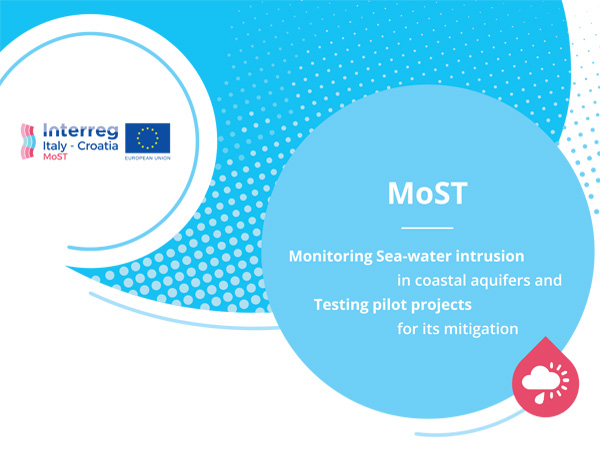MOST

MoST
Monitoring Sea-water intrusion in coastal aquifers and Testing pilot projects for its mitigation
Saltwater intrusion in coastal aquifers is a worldwide problem caused, among other factors, by human activities, such as aquifer over exploitation related to water supply for human consumption and irrigation, land reclamation of low-lying farmlands and climate changes that contribute to the reduction of groundwater natural recharge.
Both the Northern Adriatic coasts of Italy and Croatia are significantly affected by saltwater intrusion with serious consequences on agricultural activities and tourism that may become dramatic in a relatively short time due to climate change effects.
The main objective of MoST is the monitoring of the seawater intrusion to assess its relevance, suggest and test appropriate countermeasures. The project expects to improve the capacity in transnationally tackling saltwater contamination vulnerability and the preservation of strategic fresh water resources in coastal areas.
Geophysical surveys will be conducted together with the set up of pilot monitoring sites, while laboratory experiments and numerical models will lead to an adequate coastal aquifer management plan.
The project will be developed with the collaboration and the involvement of local populations and local authorities, which will be the main stakeholders of the project actions because of the expected benefits on agriculture and touristic activities.
Project coordinator: Prof. Paolo Salandin, University of Padua, Department ICEA ()
CNR Scientific Responsible: Dr. Luigi Tosi, CNR-IGG ()
Here the project video presentation.